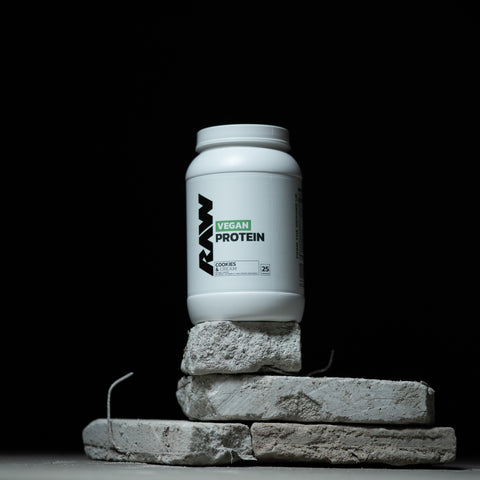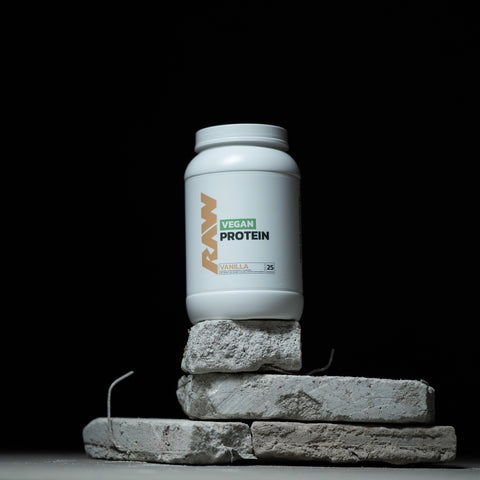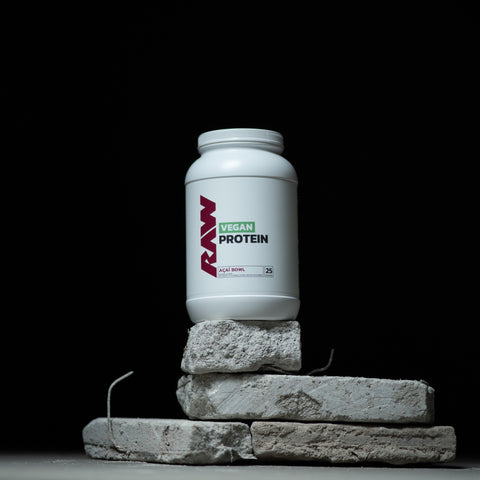Decoding the Truth: Is Whey Protein Vegetarian?
Decoding the Truth: Is Whey Protein Vegetarian?
While fitness is important, the nutrition aspect is as well. Each of us has our own goals to achieve when it comes to looking and feeling our best. At the same time, each individual has a diet that is tailored to their needs and restrictions.
Speaking of restrictions, you may be looking for a protein powder that is vegan or vegetarian friendly. You see that whey protein is an excellent option, especially for those who are looking to build muscle. But the question you ask might be, “Is whey protein vegetarian?”

We will answer this question in this informative guide. We’ll also discuss what you can look for in terms of protein powder for vegetarians and vegans. It’s always a good idea to know about the kind of ingredients inside different protein powders that may or may not be vegetarian or vegan friendly.
The more you know, the better. Let’s dive right in and discuss the real truth about whey protein and if it’s a fit for a vegetarian like yourself.
Is Whey Protein Vegetarian?
The short answer is yes and no. Sure, whey is derived from cow’s milk - which is an animal product. Vegetarians have a dietary restriction that requires them to not eat meat. On the other end of the coin, whey protein will not be a good fit for someone who adheres to a vegan or even lacto-vegetarian diet.
The structure of the diet restrictions is the major difference here. As such, milk is dairy, not meat. Raw Nutrition has Vegan Protein - which is the best option for those who adhere to a vegetarian (especially lacto-vegetarian) or vegan diet. If you don’t have either of these dietary restrictions but want to try something without the animal-based product, you’re more than welcome to try this out.
You’ll actually be quite surprised by this compared to protein powders you’ve tried in the past. What makes this stand out is that it contains 100 percent plant-based protein. Further, you get plenty of vitamins and minerals in a naturally sweetened scoop that will provide you with an excellent taste.

The Vegetarian Dilemma: What to Know
To further address whey protein and vegetarianism, we take a look at the principles of the diet restriction itself. As mentioned, it excludes meat as part of its diet. However, a lacto-vegetarian will exclude milk or dairy from their diet.
Another type of vegetarian is an ovo-vegetarian, someone who excludes eggs or any egg-based foods as part of their restrictions. It’s always a good idea to make sure that the protein powders you choose are in line with your dietary restrictions. This is a legitimate need and preference to address.
Chris Bumstead and the team at Raw Nutrition know that our supplements and protein powders should be available to anyone looking to adhere to their fitness goals. They shouldn’t sacrifice protein content goals due to dietary restrictions. And it’s one major reason why vegan protein powders exist and are available in our store.
What Are the Variations of Whey Protein Products?
You may have noticed that there are different types of whey protein products on the market. So, what is the difference between whey protein concentrate versus isolate? Let’s answer this and any other questions right now:
Whey protein concentrate vs isolate
Whey protein concentrate will retain more of the original components like fats and carbohydrates. Meanwhile, its isolate counterpart will undergo an additional process that will remove these components in an effort to make the concentration of protein higher. If you are following a regular vegetarian diet and decide that whey protein is a good way to go, its isolate version may be the best for you.
Artificial additives
There are some whey protein products that may contain artificial additives, sweeteners, and flavorings. Since this happens, vegetarians looking for a whey protein powder that is natural should find one that has as minimal of these additives as possible.
Organic and grass-fed options
One of the other options to look for is whether or not the whey protein is derived from organic or grass-fed sources. This will be something to consider if you have concerns about sustainability and animal welfare.
Types of Plant Protein Sources
When it comes to protein intake for vegetarians, knowing the different sources is key. This section will discuss the different sources of protein contained in vegetarian or vegan friendly protein powders. Here’s a look at what they are:
Soy protein
First, we take a look at soy protein. This is derived from soybeans and is considered a complete protein. It has the essential amino acids that are the necessary building blocks for muscle growth.
Thus, you have a similar, if not identical, amino acid profile compared to whey protein. While fewer grams of protein per serving, this is still a huge win for those who want to avoid whey but without sacrificing one of its most important benefits.
Pea protein
This is derived from yellow peas. Pea protein is packed with lysine, an amino acid that may not be present in plant-based diets. What makes this stand out is that it's easily digestible and great for those who have soy allergies.
Digestible protein is excellent, and whey has that in their powder as well. Once again, if you steer clear of whey, you still get a protein that will be digestible and can help out your muscles in terms of repair and recovery.
Hemp protein
Hemp seeds are great for two reasons. One, they are an excellent source of essential fatty acids. Two, they are an excellent source of protein.
Those who are including this kind of protein in their diet will get all kinds of awesome benefits. This includes a generous amount of omega-3 and omega-6 fatty acids. You may also be getting a good amount of fiber to go along with it.
Rice protein
This protein is sourced from brown rice. This is the real MVP because it’s easily digestible and hypoallergenic. It can work together with other plant-based proteins to create a complementary amino acid profile since it doesn’t have an effective one of its own.

Comparing Whey Protein vs Plant Protein
So, what’s the difference between these two types other than the obvious (animal-based vs non-animal)? We’ll break down each one part by part in this section. Take a look at the following:
Amino acid profile
Whey protein contains all essential amino acids, making it a complete protein. Soy protein is also a complete protein as well. However, the rest of the plant-based protein powders are not because of their lack of specific amino acids.
Digestibility
Digestibility is one area where whey protein shines. As for other plant-based proteins, pea protein is another. Some of the other sources will digest slower than others, like hemp.
Allergen consideration
Whey protein may not be suitable for those who are allergic to dairy. For this reason, plant-based alternatives will be an excellent option for those looking for something allergen-friendly (especially those sensitive to dairy or even soy).
Frequently Asked Questions
Before we close out the guide, we will address any questions that are frequently asked about whey protein and vegetarian alternatives. We will provide you with any additional information here that may pertain to whey protein, its vegetarian alternatives, and anything that may be relevant to the discussion. Let’s take a look at the following:

Are there any health benefits associated with whey protein?
For the most part, the best health benefits of whey protein pertain to muscle growth and recovery. It can also work for those looking to lose weight. Such benefits include feeling fuller and not being able to overeat.
Who should avoid whey protein?
Those with dairy allergies can avoid whey protein because whey is a dairy-based ingredient. Therefore, you can consider plant-based options that are great for those with such allergies and sensitivities.
Why can’t vegans eat whey?
Vegans adhere to a strict diet that does not include any animal-derived products. Dairy is one of them. Once again, vegans will need to consider plant-based proteins as their best option.
Which plant protein is the best?
This may depend on your needs and preferences. Soy protein is considered the best for its similar amino acid profile compared to whey protein. Pea protein is another excellent one because of its ease of digestibility. Before choosing a plant-based protein powder that works best for you, take into consideration your own needs that are in line with your fitness goals.
Conclusion
Whey protein may be a good option for vegetarians as long as they include dairy in their diet. However, they don’t have to use it for the purpose of meeting their fitness goals. There are plenty of whey protein alternatives out there that anyone can enjoy regardless of their diet restrictions and preferences.
Just because it’s made for vegans and vegetarians doesn’t mean that it’s only for them. You’ll be surprised by how great such protein powders taste while giving you the benefits you aim for. Explore our vast range of top-notch protein products to meet your fitness goals.



